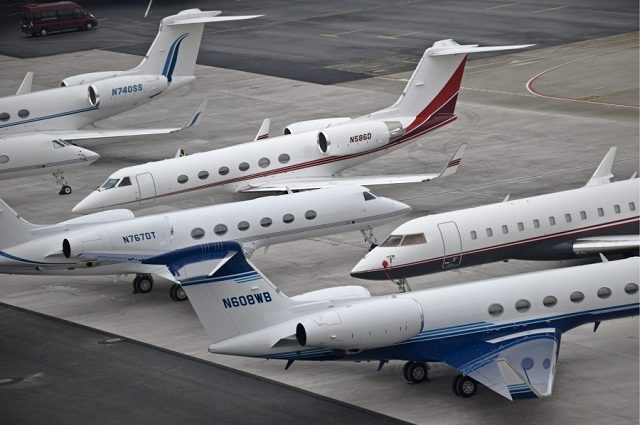The Nigerian Federal Government, through the Nigerian Customs Service (NCS), has initiated a new campaign to crack down on improperly imported private jets, according to findings by The PUNCH.
As part of this move, around 80 private jet operators have been summoned to the NCS headquarters in Abuja to present their aircraft import documents. The verification exercise, starting Wednesday, will last for 30 days, as per a public notice from the NCS.
The notice states, “The Nigeria Customs Service announces a verification exercise for privately owned aircraft operating in Nigeria. This exercise aims to identify improperly imported private aircraft without documentation, ensuring proper imports and maximum revenue collection.”
Owners and operators are required to bring specific documents, including the aircraft Certificate of Registration, Nigerian Civil Aviation Authority’s Flight Operation Compliance Certificate, Maintenance Compliance Certificate, Permit for Non-Commercial Flights, and Temporary Import Permit (if applicable).
This crackdown follows a suspension of similar actions over a year ago. In the past three years, the government has sought to recover import duties amounting to billions of naira from private jet operators who exploited regulatory loopholes to avoid paying these duties. Despite some payments following initial enforcement actions by the NCS under Hameed Ali, many operators still owe the statutory duty.
Many operators have allegedly used technical loopholes to fraudulently obtain Temporary Import Permits (TIPs) from the NCS instead of paying the required import duty. The TIP, valid initially for 12 months and extendable twice by six months, has been indefinitely extended by several operators, prompting the current enforcement action.
A top official involved in the verification exercise, speaking anonymously, stated that about 80 private jet operators are expected to participate, including operators of around 20 jets imported since the last exercise. The verification aims to enforce the payment of mandatory import duties, with non-compliant operators potentially facing grounding of their aircraft.
The TIP is seen by some as a means to evade the five percent import duty on private jets. Operators often prefer obtaining TIPs under the pretext of temporary importation, referencing the International Civil Aviation Organisation Convention’s Article 24, which allows customs waivers for commercial aircraft temporarily operating in a country.
However, the new Customs leadership is determined to enforce duty payments, potentially collecting up to N100 billion in unpaid duties, especially if the 25 percent penalty for delayed payment is applied. The willingness of private jet operators to comply remains uncertain, as some have previously taken legal action to avoid these payments.
In 2021, 17 owners of foreign-registered private jets, including top business figures and commercial banks, sued the government to prevent their jets from being grounded over import duty defaults. The NCS had directed the grounding of 91 private jets for unpaid duties exceeding N30 billion, but inter-agency conflicts hindered the enforcement.
These jet owners, using foreign shell companies and trustees, sought a judicial review of the legality of the import duty. They argue that foreign registration helps preserve aircraft value and reduce insurance costs.
The 17 applicants, mostly foreign entities, include Aircraft Trust and Financing Corp Trustee, UAML Corp, Bank of Utah Trustee, and others. The respondents to the suit are the NCAA and Customs.
In 2021, the NCS reviewed import duties on private jets imported since 2006 and found several operators evaded statutory duties under the TIP guise. A verification panel was set up, resulting in 57 jets being cleared for commercial operations and 29 jets found liable for duty payment. Another 62 jets, whose owners did not participate in the verification, were also found liable.
The extent of compliance with the new verification exercise remains to be seen, as does the new Customs management’s resolve in enforcing duty payments from influential private jet owners.













